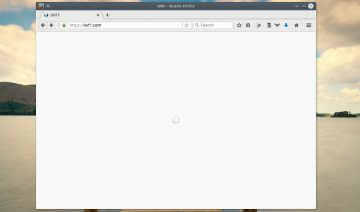In an ever changing computing environment, one of the tools we became most reliant upon is Search.
It’s maybe mostly conspicuous when we use the Internet – searching Google or any other search engine, yet locally, search might often prove to be very handy, depending on the user and the need of the moment.
Linux users, particularly those who use the more lightweight desktop environments out there: Xfce, LXDE ,etc, are especially likely to find a standalone search tool quite useful having installed on their system.
Although there are plenty of search tools available inside the bag of Linux platform, so far it seems non of which are as fast or lightweight as FSearch.
As a matter of fact, Christian Boxdörfer the developer behind FSearch, has created the utility due to these very reasons, among a few others.
“Before I started working on FSearch I took a look at all the existing solutions […] to find out whether it makes sense to improve those, […] unfortunately none of those met my requirements:
- standalone application (not part of a file manager)
- written in a language with C like performance
- no dependencies to any specific desktop environment
- Qt5 or GTK+3 based
- small memory usage (both hard drive and RAM)
- target audience: advanced users”
And thanks to one capable person’s need, the entire Linux community can now enjoy a powerful search utility.
Now, just to clarify, although Christian mentions that the target audience of FSearch are advanced users, it appears that the tool can be quite easily operated by any Linux user – it is a graphical tool so it doesn’t necessitate any command line knowledge or something of that sort. However, advanced users might find it the more so useful due to some advanced features it contains.
FSearch Features
- Instant results as you type
- Support for “wildcard” searches
- Support for RegEx
- Filter support (only search for files, folders or everything)
- Include and exclude specific folders to be indexed
- Ability to exclude certain files/folders from index using wildcard expressions
- Fast sort by filename, path, size or modification time
- Customizable interface (both light and dark theme are supported)
As you may have gathered from the above list of features, FSearch indexes locations on your file system in order to supply you with fast and accurate results. Therefore, perhaps the first thing you’ll want to do upon installing FSearch is to enter its preferences and define the locations you wish to be indexed.
The current version of FSearch is made using GTK+ 3 toolkit, yet according to the developer, the long term goal is to have a console and Qt 5 variations readily available as well.
Speaking of FSearch goals, its developer has also created a roadmap of features he plans to implement, such as: thumbnails, bookmarks, search history and more. Having the roadmap itself indicates of a well organized project with a clear vision – factors that may prove crucial of any project’s success.
Get FSearch
The current FSearch version – 0.1 – is still considered beta, though in my experience with it so far it appears to be pretty stable (haven’t encountered any hiccups personally).
Being new, it is currently available for Arch and Ubuntu based distro users through the AUR or PPA stated in FSearch’s homepage. Gentoo users may find it on rindeal overlay.
Other Linux users are obviously welcomed to install FSearch from source, instructions can be reached through the project’s homepage as well.









